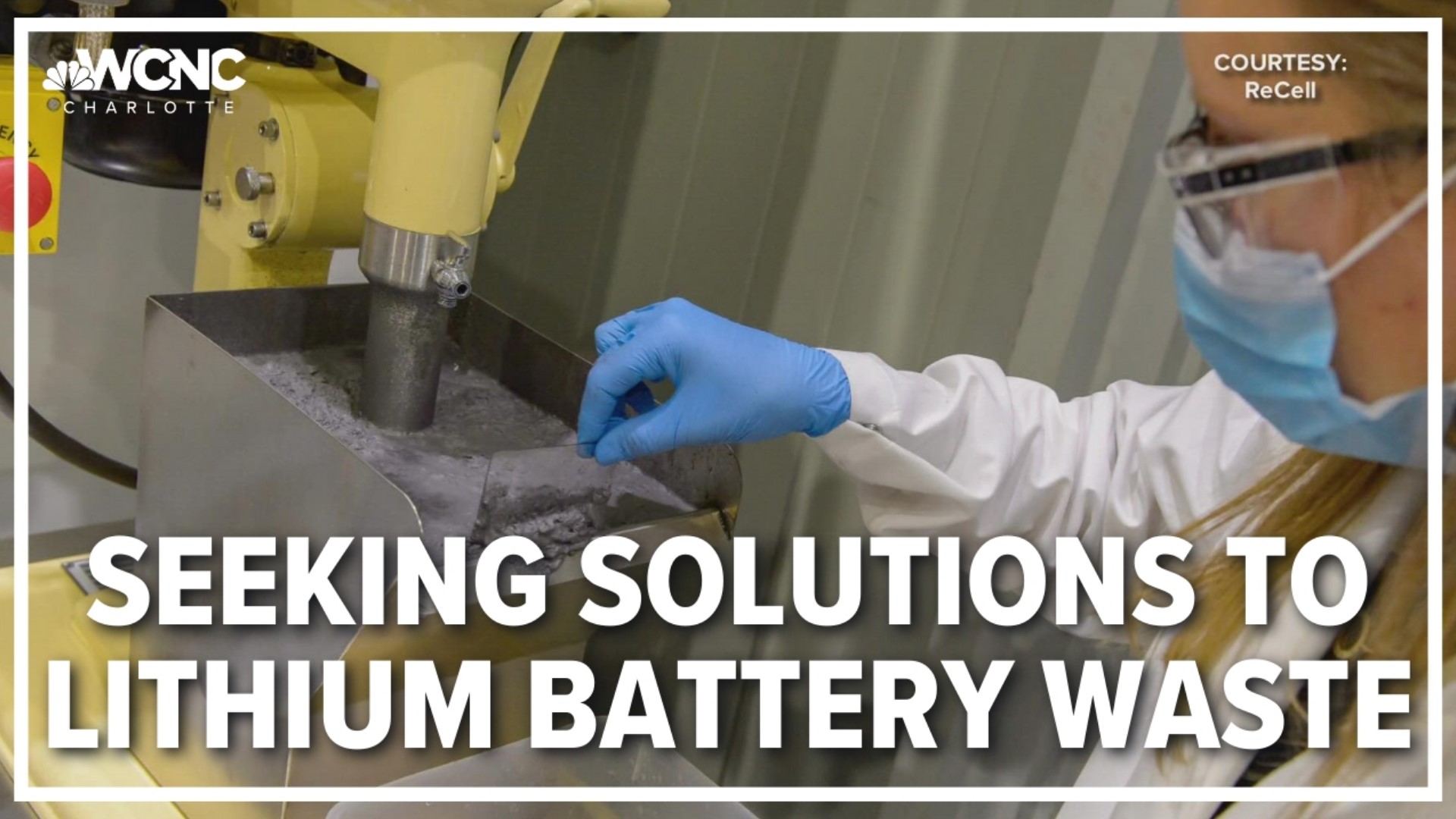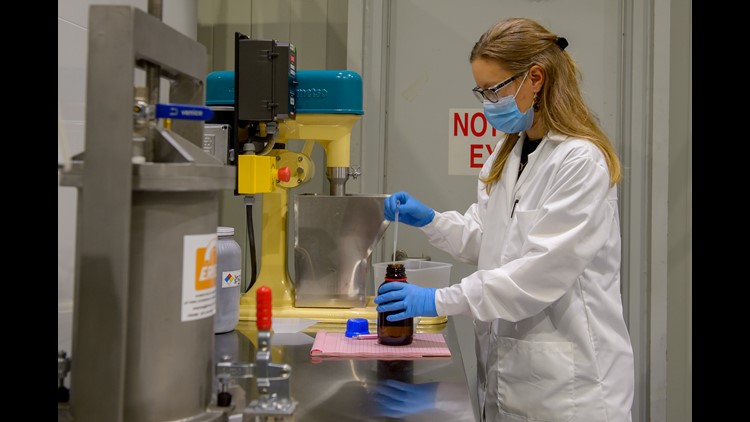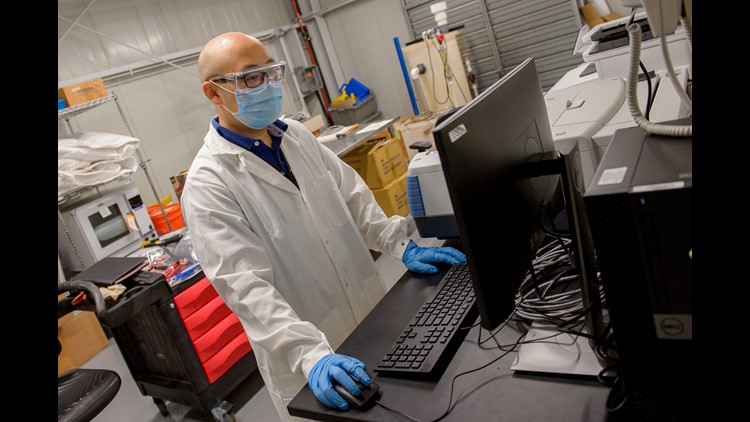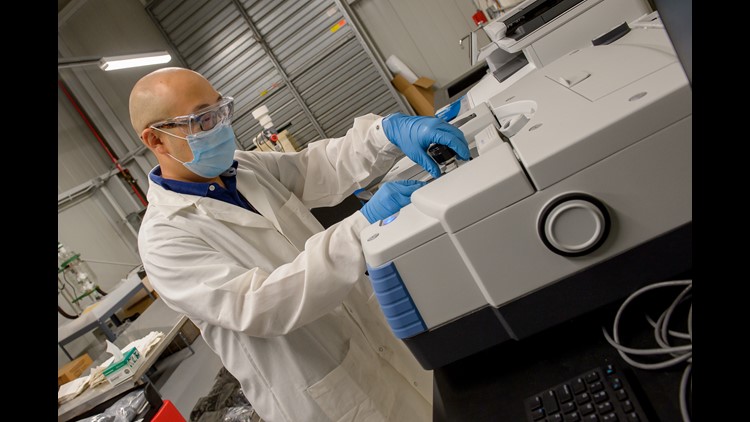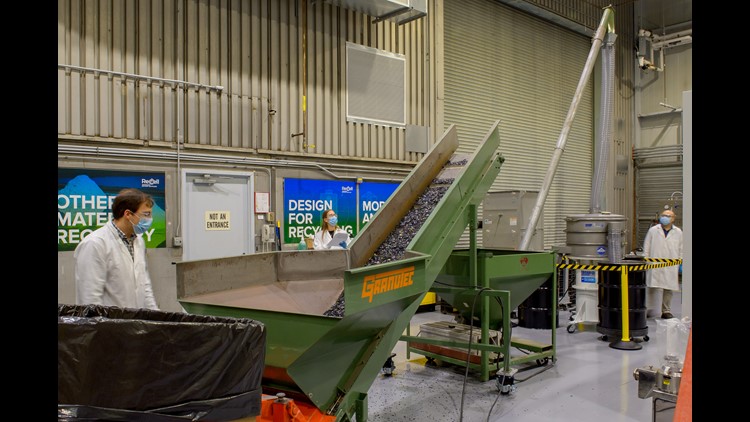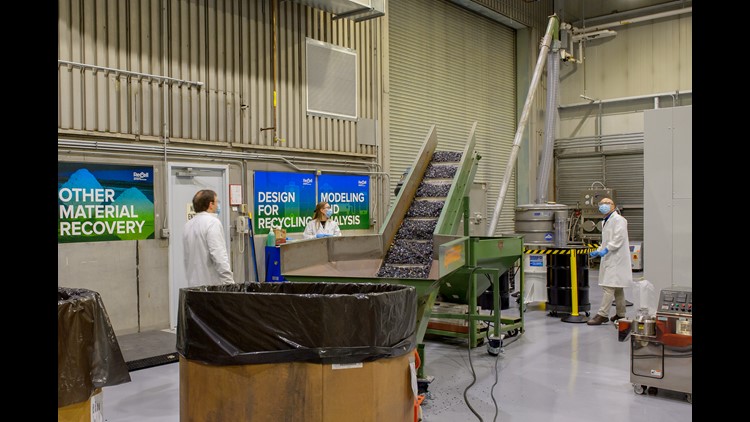CHARLOTTE, N.C. — North Carolina will soon be home to another electric vehicle battery plant: VinFast, a Vietnamese auto-manufacturer looking to build and sell its electric vehicles in the United States.
With Americans' rising interest and the push from the Biden administration for Americans to adopt zero-emissions vehicles comes the concern about recycling lithium-ion batteries.
These high-performing, rechargeable batteries are in just about everything we use on a daily basis: computers, laptops, smartphones and yes, electric vehicles.
Precious metals like aluminum alloy, nickel, and cobalt are mined to create lithium-ion batteries. The U.S. Department of Energy has poured millions of dollars into researching and developing ways to recycle these types of batteries.
That's where ReCell comes in. It's a national battery recycling center with one mission: to reduce the financial burden of recycling lithium-ion batteries and create technologies to optimize recycling of these batteries. Below are pictures of researchers in ReCell's Argonne Laboratory.
ReCell is a national effort aimed at researching sustainable lithium-ion recycling practices.
There are two ways ReCell has identified to recycle lithium-ion batteries.
- The first is shredding the battery and then putting the materials into acid, dissolving them, and filtering the rest of the components.
- The second method is using heat to burn off the organic material and then collect the valuable materials. ReCell said both processes allow them to get components for new batteries.
"Ultimately, we want them to go into new batteries," Jeff Spangenberger, the director at ReCell's Argonne Laboratory, said. "So that takes more time for several steps along the way."
Spangenberger said the effort to create good recycling methods for lithium-ion batteries is imperative for the U.S.
"Recycling provides us a material that we've already purchased once from another country, we recycle it, and now we keep it here," Spangenberger said. "And so we're basically mining our own wastes. It's a great source of those materials."
Spangenberger acknowledged both methods require energy, and both methods generate waste.
"The air emissions are larger using the furnaces," Spangenberger said. "If you're using the hydro process, you're doing to have more liquid wastes, things like that. So there's pros and cons of each type of recycling that's out there right now."
The U.S. is slow to start on the battery recycling front, but Spangenberger said it's picking up. Right now there are four recycling facilities of this kind across the country. The main reason for that is because electric vehicle batteries haven't reached the end of their life warranty yet, and so the push to recycle hasn't been felt.
"But that is estimated to grow enormously," Spangenberger said. "And so we need to ramp up this industry."

